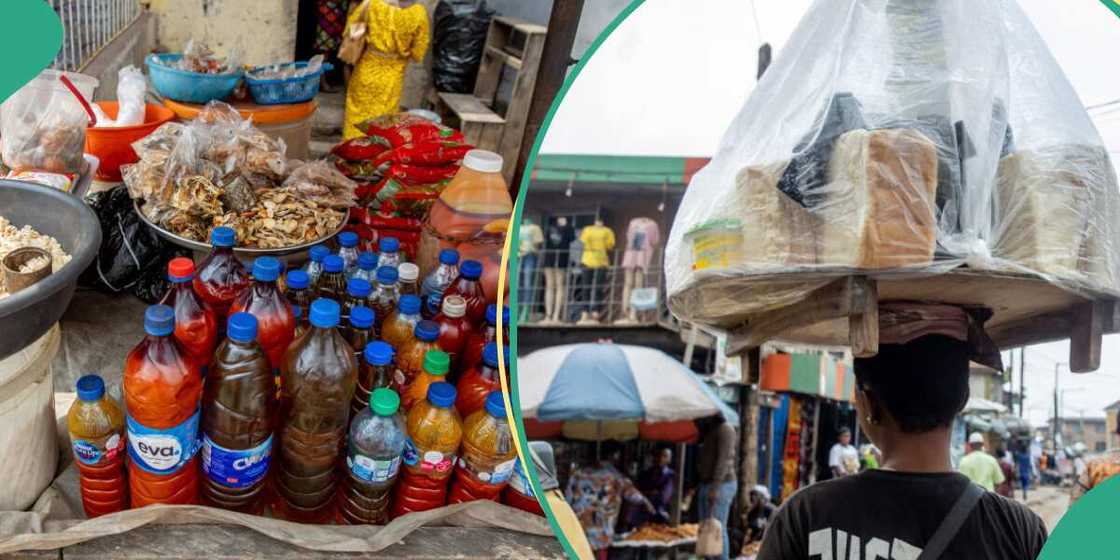Kogi Leads List of 10 Most Expensive States to Live in Nigeria, As Inflation Cuts Workers' Salaries
- Latest data from NBS has shown a list of 10 states that are the most expensive to live in, especially for workers in Nigeria
- The figures are based on the latest inflation rate and its impact on workers' salaries in just one year
- The report indicates that Kogi, Oyo, and Rivers are among the states with the highest rise in inflation
PAY ATTENTION: Leave your feedback about Legit.ng. Fill in this short form. Help us serve you better!
Legit.ng journalist Dave Ibemere has over a decade of business journalism experience with in-depth knowledge of the Nigerian economy, stocks, and general market trends.
The newly released Consumer Price Index by the National Bureau of Statistics (NBS) shows that the cost of living in Nigeria remains on the rise.
According to the NBS report, inflation, which measures the price change of goods, rose in February to 31.70%, the highest level in 29 years.

Read also
Traders sell dollar at new rates in official and parallel markets as naira hits lowest in May

Source: Getty Images
This is a significant increase of 9.79% compared to the rate recorded in February 2023, which was 21.91%.
It is also 1.80% points higher than the 29.90% inflation rate recorded in January 2024.
The impact of inflation rate changes
The latest report indicates that Nigerians are getting poorer as the value of items they can buy with the money at hand has reduced.
In context, if a Nigerian earns N30,000 (the national minimum wage) as of February 2023, their real income one year later (February 2024) is N22,782.97 when adjusted for the inflation rate of 31.70%.
This means the value of an average Nigerian worker's salary when going to the market has been reduced by N7,217.
Real income, also known as real wage, is how much money an individual or entity makes after accounting for inflation.

Read also
New exchange rate as Naira gains over N64 in hours against US dollar, first appreciation in days
Top 10 states with the highest inflation rate
Here are the top 10 most expensive states to live as a Nigerian worker and the amount lost to inflation.
| States | Inflation rate(%) | Real income after one year |
| Kogi | 37.98 | N21,723 |
| Oyo | 36.60 | N21,981 |
| Bauchi | 35.62 | N22,137 |
| Kwara | 35.50 | N22,155 |
| Rivers | 35.42 | N22,158 |
| Osun | 34.39 | N22,307 |
| Ebonyi | 34.28 | N22,326 |
| Abia | 34.12 | N22,350 |
| Ondo | 33.96 | N22,322 |
| Akwa Ibom | 33.94 | N22,323 |
In the last few months, the cost of living has skyrocketed in Nigeria, with many families having to deal with price changes. To cushion the effect, a Nigerian commodities export company announced a 44% increase in the salaries of its employees.
Price of rice to crash
In good news, Legit.ng reported that based on analysis by the Economic Research Service of the United States Department of Agriculture (USDA), Nigeria is anticipated to emerge as a major global rice importer, projecting an import of approximately 2.1 million metric tons in 2024.

Read also
UBA, Access, Zenith, BDC traders quote new exchange rates to buy dollar as Naira crashes again
The report forecasted that the worldwide rice industry will reach around 52.85 million tons by 2024, with increased exports from Brazil and South Korea and heightened imports expected from Burkina Faso, Indonesia, and Nigeria.
The study also predicts a decline in rice production in Nigeria and seven other countries.
PAY ATTENTION: Unlock the best of Legit.ng on Pinterest! Subscribe now and get your daily inspiration!
Source: Legit.ng

